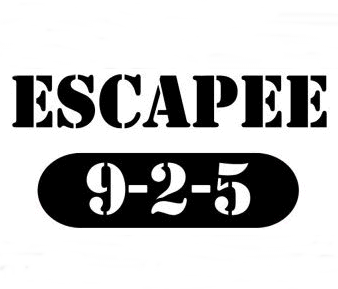Before escaping the 9 to 5. Kristin Bales worked as a technical writer in the software industry, an editor in a government contracting firm and a proposal manager for a construction firm with government contracts. For the last 4 1/2 years she has been running her own business as a proposal writer/manager. She is hired by small businesses who are looking to win government contracts in all areas. Her customers have ranged from a gun manufacturer to IT services to healthcare quality and everything in between. “It’s a high-pressure, deadline-oriented business, but I do it entirely from home in rural North Idaho over the internet, through email and phone communications”. Kristin is also a published author of four works of fiction.
In her last corporate job, Kristin was working for a construction firm writing and managing government proposals. She lived in a very small mining town in Idaho where there were very few businesses. However, she managed to make some good connections through that employer due to joint ventures and subcontracting work. After about 18 months, Kristin got married and had to move more than 75 miles away. Her new husband had a very stable job that he’d be in for more than 12 years and his income was better than hers. The company Kristin worked for was not interested in her working from home, so she had to leave her job. Through my connections, she managed to build a small client list of customers, which has produced a decent income.
Being Self Employed
The proposal writing business has feast and famine periods. Typically the spring through the fall is the busiest time for my business. Winter can be slow. “This is when I find time to do my creative writing. I had started writing books about 15 years ago and had 2 published traditionally. Since I started my business, I have completed 2 additional novels and have written a number of short stories. I find this combination of creative and business writing to be challenging and fun”.
Kristin doesn’t miss the 9-to-5 routine at all, with the exception of getting a steady paycheck! She also loves being able to set her own schedule. Although she generally triesto be at her desk from 8 am to 4 pm, she can easily schedule appointments, meet her husband for lunch, or participate in daytime events if necessary without asking anyone permission. She can also take vacation when she wants without approval. “I work all hours and on weekends, if that is what a client needs. But I also have the flexibility to set my own schedule. If I need to go to an appointment or want to take off for a long weekend, I can do what I want”.
Here are are a few things that Kristin has learned from her escape from the 9 to 5.
- Make sure you have a few possible clients before you set out your shingle. You don’t want to spend the first months or first year of your business trying to find clients.
- Make sure you can afford to go without a salary for awhile. I have the benefit of being married to someone with a steady job and a good income. No matter how slow my business is, I am not going to lose my house or be unable to pay the bills at the end of the month if my business is slow. You don’t want to go broke trying to start a business.
- Don’t be afraid to promote yourself. I have been pretty lucky in that I haven’t needed to advertise very much. I currently have enough work through my clients to make a steady, decent income. However, I know that may not last. I have been keeping my eye on certain annual small business events where I can promote my business and find new clients. I also have done research on organizations or websites where people in my line of work connect with businesses. If I need to build up my business, I will take on some advertising and self-promotion to keep my business going.
- Treat your business like a real business. You need to have a reliable schedule. Get ready for work every day (shower, get dressed, etc.), be at your desk at a consistent time, answer phone calls professionally – not with a dog barking or the television on in the background, be responsive. You want a client to know that your home office works just like a real office, and you are serious about what you are doing.
- Learn about tax laws for small businesses and keep track of your expenditures. A sole proprietorship does not get the same breaks as a corporation, so you have to be religious in your documentation of expenses. Keep all receipts, take good notes about any trips you take or clients you meet, track mileage, etc. You do not want to miss out on deductions that could save you thousands in unnecessary taxes!
Probably the number one best part about working for herself is being able to decide how much she wants to work and when. “I can always turn down work opportunities, if I feel I’m too busy. It has removed a lot of stress from my life.” Kristin is looking to grow both her proposal writing business and increase readership for her fiction. “I would love to hire a couple of recent college graduates and train them how to analyze RFPs and write proposals. Right now, my workload is not big enough to warrant that, but I haven’t really tried to grow my business to that level”. For now Kristin enjoys working alone and loves the quiet and solitude. “As long as I can make a decent income, I don’t think I will go back to the corporate world. The only one who interrupts my work day is ME!”
http://www.kjbwriting.com and my business is called KJB Writing Services LLC.
http://kjgillenwater.com and my pen name is K. J. Gillenwater.
Twitter (@kjgillenwater), Pinterest (@kjgillenwater) and Wattpad (@kgillenwater).










